Dear Zazie, Today’s Lovers’ Chronicle from Mac Tag to his muse. Follow us of Twitter @cowboycoleridge. Howzit goin’ Z? Same same here; chores, readin’, writin’, drinkin’ some cold beer. Probably have some red wine and a steak later. In other words, the typical life for a solitary cowboy. Be good to yourself. Rhett
The Lovers’ Chronicle
Dear Muse,
one more time,
dare ask the silence
and this response
mornin’ sun paints the bright scene
not a dream, arm in arm, bodies
fit naturally, as intended to be
above our bodies, fan blades
turn, a slow shadow dance
on the ceilin’, the tidal rise
and fall of our breathin’,
the afterglow of need
© copyright 2021.2023 mac tag/cowboycoleridge all rights reserved
© copyright 2020 mac tag/cowboy coleridge all rights reserved
let this be our guide
to keep tryin’
to come near
to not be denied
accept the pain
show not feelin’s
to others,
only to you
if you look
you will see
not far away
maybe you will,
most of all
touched
by the tenderness
and ask why
because we know
© copyright 2019 mac tag/cowboy coleridge all rights reserved
il mio tutto
how to express
what cannot be
i could write
how do i love thee ilk
but to what avail
beauty and sorrow,
sisters, each ready
to step in and take
their place at your side
how quickly…
from heights,
to depths
i have been intimate
with both
and they and you
remain
my only need
© copyright 2018 mac tag/cowboy coleridge all rights reserved
need, helluva thing
i go there when i can…
that time by the ocean
when we shared a room
for the first time. mornin’
sun paints the bright scene
even brighter. sea breeze
billows the white curtains
a dream, arm in arm, bodies
fit naturally, as meant to be.
above our bodies, fan blades
turn, a slow shadow dance
on the ceilin’. the tidal rise
and fall of our breathin’,
the afterglow of need
one more time,
dare ask the silence
© copyright 2017 mac tag/cowboy Coleridge all rights reserved
Il mio rifugio
Il mio confidente
Il mio Tutto
How to express
that which cannot
be put into words…
I could write
how do I love thee
all day long and still
not git it right
Joy and Sorrow,
sisters, each ready
to step in and take
their place at your side
How quickly…
from the heights of joy
to the depths of sorrow
I have been intimate
with both, but for too long
Sorrow has been my mistress
How I wish for Joy to return
How I long for you my muse
© copyright 2016 Mac Tag all rights reserved
Everything i
ever wanted
reverberates
in my mind when
I am with you
© 2015 mac tag/cowboy coleridge all rights reserved

A painting of Mary Wortley Montagu by Jonathan Richardson the Younger
Today is the baptismal day of Lady Mary Wortley Montagu (baptised in St. Paul’s Church in Covent Garden, London 26 May 1689 – 21 August 1762) (née Pierrepont); aristocrat, letter writer and poet. Perhaps best remembered for her letters, particularly her letters from travels to the Ottoman Empire, as wife to the British ambassador to Turkey. Aside from her writing, Lady Mary is also known for introducing and advocating for smallpox inoculation to Britain after her return from Turkey. Her writings address and challenge the hindering contemporary social attitudes towards women and their intellectual and social growth.

Lady Mary with her son Edward, by Jean-Baptiste van Mour
By 1710, Lady Mary had two possible suitors to choose from: Edward Wortley Montagu and Clotworthy Skeffington. Lady Mary corresponded with Edward Wortley Montagu via letters from 28 March 1710 to 2 May 1711. After May 1711 there was a break in contact between Lady Mary and Edward Wortley Montagu. Mary’s father, now Marquess of Dorchester, rejected Wortley Montagu as a prospect because he refused to entail his estate on a possible heir. Her father pressured her to marry Clotworthy Skeffington, heir to an Irish peerage. In order to avoid marriage to Skeffington, she eloped with Wortley. The marriage license is dated 17 August 1712, the marriage probably took place on 23 August 1712.

Lady Mary, by Charles Jervas, after 1716
In 1716, Edward Wortley Montagu was appointed Ambassador at Istanbul. In August 1716, Lady Mary accompanied him to Vienna, and thence to Adrianople and Istanbul. He was recalled in 1717, but they remained at Istanbul until 1718.
The story of this voyage and of her observations of Eastern life is told in Letters from Turkey, a series of lively letters full of graphic descriptions; Letters is often credited as being an inspiration for subsequent female travellers/writers, as well as for much Orientalist art. During her visit she was sincerely charmed by the beauty and hospitality of the Ottoman women she encountered, and she recorded her experiences in a Turkish bath. She also recorded a particularly amusing incident in which a group of Turkish women at a bath in Sofia, horrified by the sight of the stays she was wearing, exclaimed that “the husbands in England were much worse than in the East, for [they] tied up their wives in little boxes, the shape of their bodies”. Lady Mary wrote about misconceptions previous travellers, specifically male travellers, had recorded about the religion, traditions and the treatment of women in the Ottoman Empire. Her gender and class status provided her with access to female spaces, that were closed off to males. Her personal interactions with Ottoman women enabled her to provide, in her view, a more accurate account of Turkish women, their dress, habits, traditions, limitations and liberties, at times irrefutably more a critique of the Occident than a praise of the Orient.
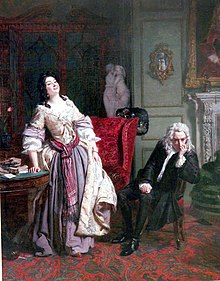
Alexander Pope declared his love to Lady Mary, who responded with laughter.
Before starting for the East Lady Mary Wortley Montagu had met Alexander Pope, and during her Embassy travels with her husband, they wrote each other a series of letters. While Pope may have been fascinated by her wit and elegance, Lady Mary’s replies to his letters reveal that she was not equally smitten.
In 1736, Mary met and fell in love with Count Francesco Algarotti, who competed with an equally smitten John Hervey for her affections.
Lady Mary wrote many letters to Algarotti in English and in French after his departure from England in September 1736. In July 1739 Lady Mary departed England ostensibly for health reasons declaring her intentions to winter in the south of France. In reality, she left to visit and live with Algarotti in Venice. Their relationship ended in 1741 after Lady Mary and Algarotti were both on diplomatic mission in Turin. Lady Mary stayed abroad and traveled extensively. After traveling to Venice, Florence, Rome, Genoa and Geneva, she finally settled in Avignon in 1742. She left Avignon in 1746 for Brescia, where she fell ill and stayed for nearly a decade, leaving for Lovere in 1754. After August 1756, she resided in Venice and Padua and saw Algarotti again in November.

Lady Mary in 1739
Lady Mary received news of her husband Edward Wortley Montagu’s death in 1761 and left Venice for England. En route to London, she handed her Embassy Letters to the Rev. Benjamin Sowden of Rotterdam, for safe keeping and “to be dispos’d of as he thinks proper”. Lady Mary reached London in January 1762, and died in the year of her return, on 21 August 1762.

Lady Mary in Turkish dress by Jean-Étienne Liotard, ca. 1756, Palace on the Water in Warsaw

A painting by Jean Auguste Dominique Ingres that was inspired by Lady Mary’s detailed descriptions of nude Oriental beauties

Lady Mary in Turkish dress
- Let this great maxim be my virtue’s guide,—
In part she is to blame that has been tried:
He comes too near that comes to be denied.- The Lady’s Resolve (1713). A fugitive piece, written on a window by Lady Montagu, after her marriage.
- In response to Lady Mary Montague’s line ‘And we meet, with champagne and a chicken at last’ (from Montague’s poem ‘The Lover: A Ballad’):
“What say you to such a supper with such a woman? … Is not her ‘champagne and chicken’ worth a forest or two? Is it not poetry?”
–from Letters and Journals of Lord Byron: with Notices of his Life. Ed. Thomas Moore. Paris: A. and W. Gaglinani, 1830. p. 391.
- Be plain in dress, and sober in your diet;
In short, my deary, kiss me, and be quiet.- A Summary of Lord Lyttelton’s Advice.
- Satire should, like a polished razor keen,
Wound with a touch that’s scarcely felt or seen.- To the Imitator of the First Satire of Horace, Book ii.
- But the fruit that can fall without shaking
Indeed is too mellow for me.- The Answer.
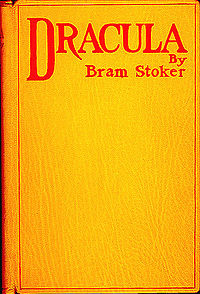 On this day in 1897 – Dracula, a novel by the Irish author Bram Stoker, is published. Of course, the book is famous for introducing the character of the vampire Count Dracula. The novel tells the story of Dracula’s attempt to move from Transylvania to England, so that he may find new blood and spread the undead curse, and of the battle between Dracula and a small group of men and women led by Professor Abraham Van Helsing. Dracula has been assigned to many literary genres including vampire literature, horror fiction, the gothic novel, and invasion literature. Stoker did not invent the vampire but he defined its modern form, and the novel has spawned numerous theatrical, film, and television interpretations.
On this day in 1897 – Dracula, a novel by the Irish author Bram Stoker, is published. Of course, the book is famous for introducing the character of the vampire Count Dracula. The novel tells the story of Dracula’s attempt to move from Transylvania to England, so that he may find new blood and spread the undead curse, and of the battle between Dracula and a small group of men and women led by Professor Abraham Van Helsing. Dracula has been assigned to many literary genres including vampire literature, horror fiction, the gothic novel, and invasion literature. Stoker did not invent the vampire but he defined its modern form, and the novel has spawned numerous theatrical, film, and television interpretations.
Select Quotes from Dracula (1897)
- I heard a heavy step approaching behind the great door, and saw through the chinks the gleam of a coming light. Then there was the sound of rattling chains and the clanking of massive bolts drawn back. A key was turned with the loud grating noise of long disuse, and the great door swung back.
Within, stood a tall old man, clean shaven save for a long white moustache, and clad in black from head to foot, without a single speck of colour about him anywhere. He held in his hand an antique silver lamp, in which the flame burned without a chimney or globe of any kind, throwing long quivering shadows as it flickered in the draught of the open door. The old man motioned me in with his right hand with a courtly gesture, saying in excellent English, but with a strange intonation.
“Welcome to my house! Enter freely and of your own free will!”- Jonathan Harker’s journal
- I am Dracula, and I bid you welcome, Mr. Harker, to my house. Come in, the night air is chill, and you must need to eat and rest.
- Count Dracula to Jonathan Harker
- We are in Transylvania, and Transylvania is not England. Our ways are not your ways, and there shall be to you many strange things.
- Dracula to Jonathan Harker
- Listen to them — children of the night. What music they make.
- Dracula referring to the howling of the wolves to Jonathan Harker.
- No man knows till he has suffered from the night how sweet and dear to his heart and eye the morning can be.
- Jonathan Harker
- Despair has its own calms.
- Jonathan Harker
- Nothing is too small. I counsel you, put down in record even your doubts and surmises. Hereafter it may be of interest to you to see how true you guess. We learn from failure, not from success!
- Professor Abraham Van Helsing to Dr. John Seward
- He seemed so confident that I, remembering my own confidence two nights before and with the baneful result, felt awe and vague terror. It must have been my weakness that made me hesitate to tell it to my friend, but I felt it all the more, like unshed tears.
- Dr. John Seward
- Van Helsing and I came on here. The moment we were alone in the carriage he gave way to a regular fit of hysterics. He has denied to me since that it was hysterics, and insisted that it was only his sense of humour asserting itself under very terrible conditions. He laughed till he cried, and I had to draw down the blinds lest any one should see us and misjudge; and then he cried, till he laughed again; and laughed and cried together, just as a woman does. I tried to be stern with him, as one is to a woman under the circumstances; but it had no effect. Men and women are so different in manifestations of nervous strength or weakness! Then when his face grew grave and stern again I asked him why his mirth, and why at such a time. His reply was in a way characteristic of him, for it was logical and forceful and mysterious. He said:—
“Ah, you don’t comprehend, friend John. Do not think that I am not sad, though I laugh. See, I have cried even when the laugh did choke me. But no more think that I am all sorry when I cry, for the laugh he come just the same. Keep it always with you that laughter who knock at your door and say, ‘May I come in?’ is not the true laughter. No! he is a king, and he come when and how he like. He ask no person; he choose no time of suitability. He say, ‘I am here.’ Behold, in example I grieve my heart out for that so sweet young girl; I give my blood for her, though I am old and worn; I give my time, my skill, my sleep; I let my other sufferers want that so she may have all. And yet I can laugh at her very grave — laugh when the clay from the spade of the sexton drop upon her coffin and say ‘Thud, thud!’ to my heart, till it send back the blood from my cheek. My heart bleed for that poor boy — that dear boy, so of the age of mine own boy had I been so blessed that he live, and with his hair and eyes the same. There, you know now why I love him so. And yet when he say things that touch my husband-heart to the quick, and make my father-heart yearn to him as to no other man — not even you, friend John, for we are more level in experiences than father and son — yet even at such a moment King Laugh he come to me and shout and bellow in my ear, ‘Here I am! here I am!’ till the blood come dance back and bring some of the sunshine that he carry with him to my cheek. Oh, friend John, it is a strange world, a sad world, a world full of miseries, and woes, and troubles; and yet when King Laugh come, he make them all dance to the tune he play. Bleeding hearts, and dry bones of the churchyard, and tears that burn as they fall — all dance together to the music that he make with that smileless mouth of him. And believe me, friend John, that he is good to come, and kind. Ah, we men and women are like ropes drawn tight with strain that pull us different ways. Then tears come; and, like the rain on the ropes, they brace us up, until perhaps the strain become too great, and we break. But King Laugh he come like the sunshine, and he ease off the strain again; and we bear to go on with our labour, what it may be.”- Dr. Seward’s Diary entry for 22 September
- “Friend John, forgive me if I pain. I showed not my feeling to others when it would wound, but only to you, my old friend, whom I can trust. If you could have looked into my very heart then when I want to laugh; if you could have done so when the laugh arrived; if you could do so now, when King Laugh have pack up his crown, and all that is to him — for he go far, far away from me, and for a long, long time — maybe you would perhaps pity me the most of all.”
I was touched by the tenderness of his tone, and asked why.
“Because I know!”- Professor Van Helsing to Dr. John Seward, in Dr. Seward’s Diary entry for 22 September
- You reason well, and your wit is bold, but you are too prejudiced. You do not let your eyes see nor your ears hear, and that which is outside your daily life is not of account to you. Do you not think that there are things which you cannot understand, and yet which are, that some people see things that others cannot? But there are things old and new which must not be contemplated by men’s eyes, because they know, or think they know, some things which other men have told them. Ah, it is the fault of our science that it wants to explain all, and if it explain not, then it says there is nothing to explain. But yet we see around us every day the growth of new beliefs, which think themselves new, and which are yet but the old, which pretend to be young, like the fine ladies at the opera.
- Professor Van Helsing to Dr. Seward
- One and all we felt that the holy calm that lay like sunshine over the wasted face and form was only an earthly token and symbol of the calm that was to reign for ever.
- Dr. Seward of Lucy Westenra
- I have always thought that a wild animal never looks so well as when some obstacle of pronounced durability is between us. A personal experience has intensified rather than diminished that idea.
- The Keeper in the Zoological Gardens
- You think to baffle me, you with your pale faces all in a row, like sheep in a butcher’s. You shall be sorry yet, each one of you! You think you have left me without a place to rest, but I have more. My revenge is just begun! I spread it over centuries, and time is on my side. Your girls that you all love are mine already. And through them you and others shall yet be mine, my creatures, to do my bidding and to be my jackals when I want to feed. Bah!
- Dracula, having found Jonathan Harker, Quincey Morris and Arthur Holmwood in his house
- The sun was almost down on the mountain tops, and the shadows of the whole group fell upon the snow. I saw the Count lying within the box upon the earth, some of which the rude falling from the cart had scattered over him. He was deathly pale, just like a waxen image, and the red eyes glared with the horrible vindictive look which I knew so well. As I looked, the eyes saw the sinking sun, and the look of hate in them turned to triumph. But, on the instant, came the sweep and flash of Jonathan’s great knife. I shrieked as I saw it shear through the throat. Whilst at the same moment Mr. Morris’s bowie knife plunged into the heart. It was like a miracle, but before our very eyes, and almost in the drawing of a breath, the whole body crumbled into dust and passed from our sight. I shall be glad as long as I live that even in that moment of final dissolution, there was in the face a look of peace, such as I never could have imagined might have rested there.
- Mina Harker
- Seven years ago we all went through the flames. And the happiness of some of us since then is, we think, well worth the pain we endured.
- Jonathan Harker
And today is the birthday of Dorothea Lange (Dorothea Margaretta Nutzhorn; Hoboken, New Jersey; May 26, 1895 – October 11, 1965 San Francisco); documentary photographer and photojournalist, best known for her Depression-era work for the Farm Security Administration (FSA). Lange’s photographs influenced the development of documentary photography and humanized the consequences of the Great Depression.
Gallery
Mac Tag
My love for you is more athletic than a verb.
Sylvia Plath
Joy, in growing deeper and more deep,
Walks in the vesture of her sister Sorrow.
W.B. Yeats

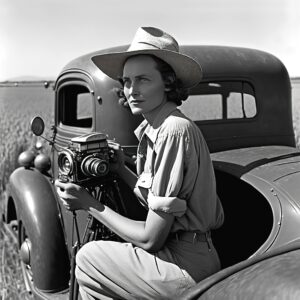
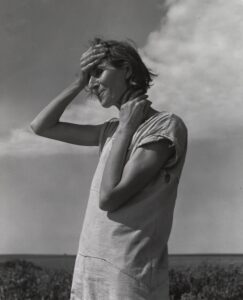
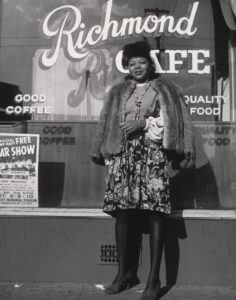
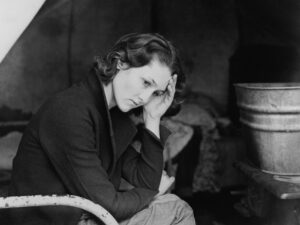
No Comments on "The Lovers’ Chronicle 26 May – need – birth of Lady Mary Wortley Montagu – publication of Bram Stoker’s Dracula – photography by Dorothea Lange"